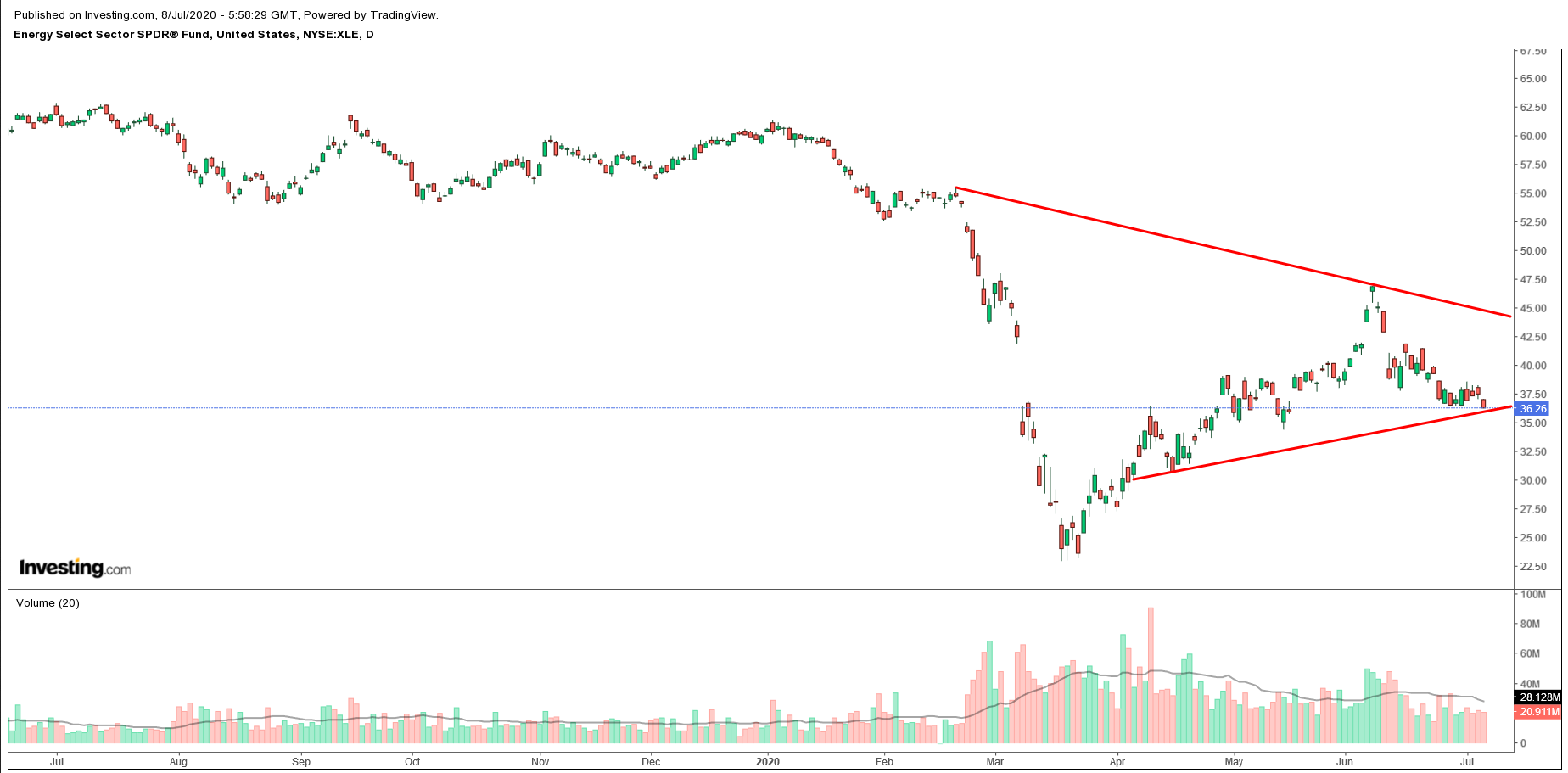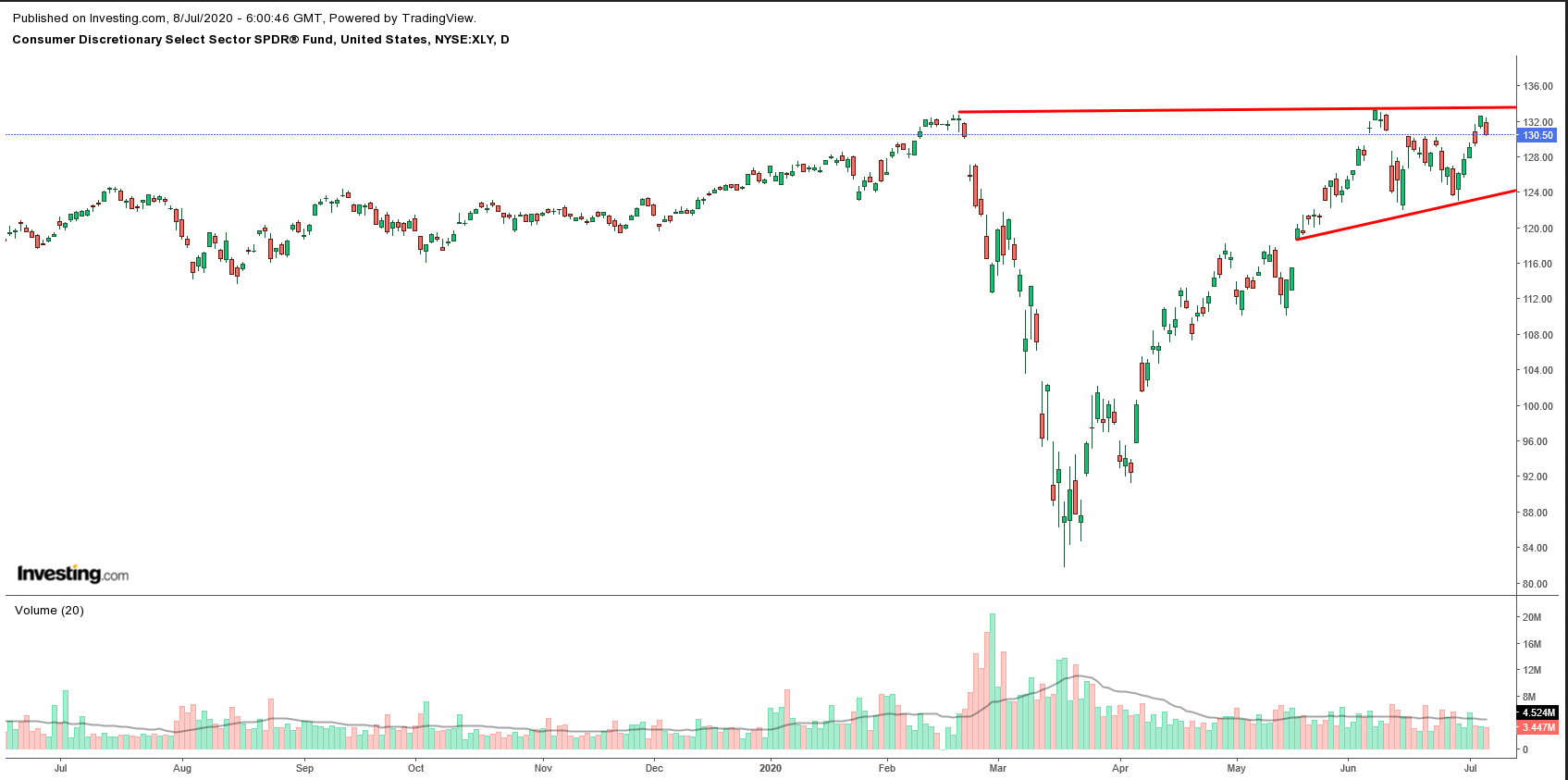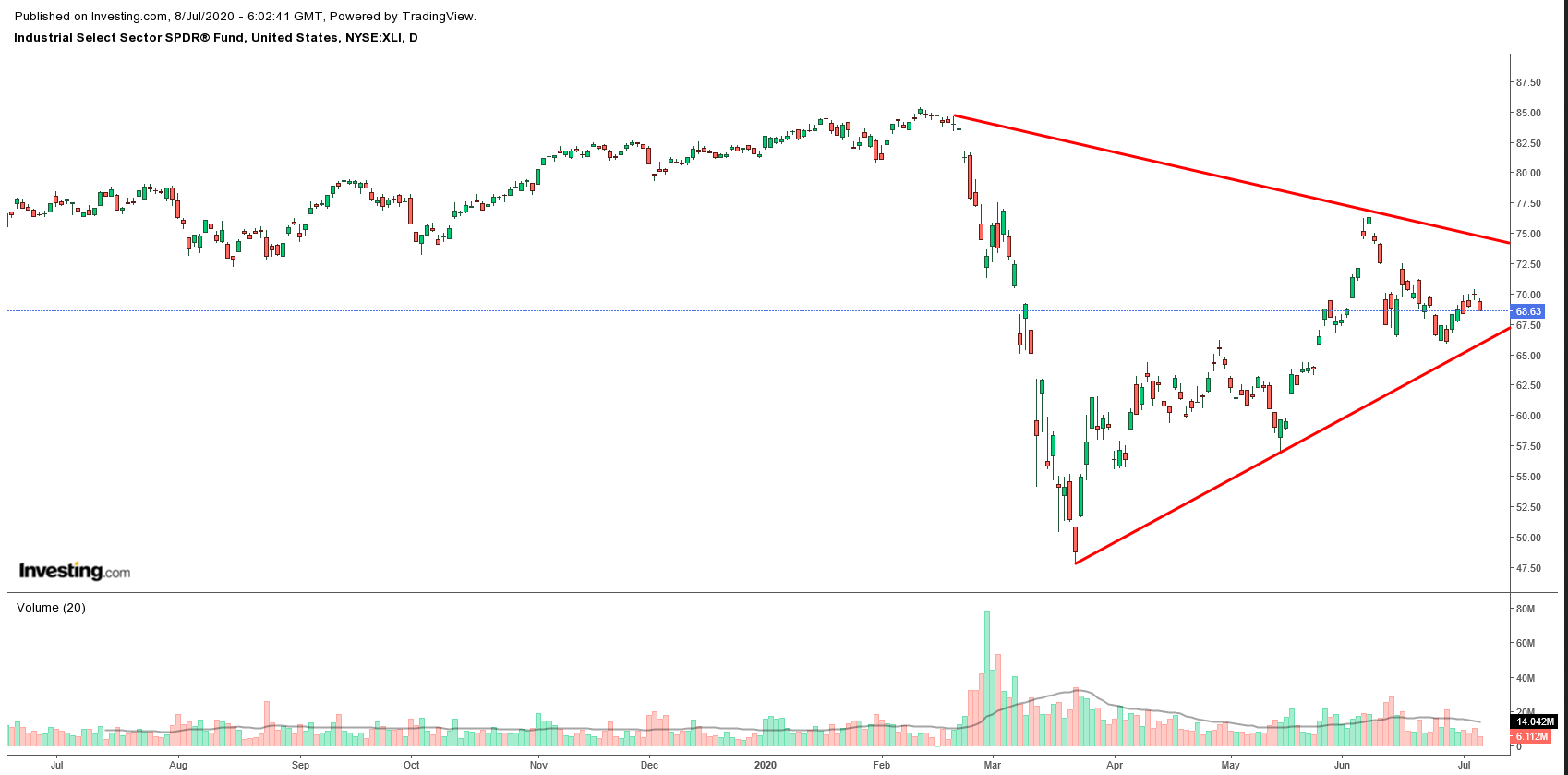With less than a week until the unofficial start of Wall Street's second-quarter earnings season, investors are bracing for what may be the worst reporting season since the depths of the 2008-09 global financial crisis.
FactSet data shows analysts anticipate Q2 S&P 500 earnings will plummet by a jaw-dropping 43.8% when compared to the same period last year. If confirmed, this will mark the largest YoY decline in earnings reported by the index since the fourth quarter of 2008, when earnings dropped by 69.1%.
All 11 sectors are projected to report a YoY drop in earnings, led by the Energy, Consumer Discretionary, Industrials, and Financials sectors.
Revenue expectations are equally unsettling, with sales growth predicted to slip 11.1% YoY, which would be the biggest tumble since Q3 2009. Nine of the 11 sectors are anticipated to report a YoY drop in revenues, led once again by the Energy, Industrials, and Consumer Discretionary sectors.
Below we break down 3 sectors whose earnings are projected to take the deepest dives:
1. Energy: Lower Oil Prices To Hammer Results
- Q2 EPS Estimate: -148.3% YoY
- Q2 Revenue Forecast: -42.2% YoY
The Energy sector is forecast to print the most colossal YoY earnings losses, with a staggering -148.3% slide in second-quarter EPS from a year earlier, according to FactSet. Energy, like the other sectors on this list, is facing the largest YoY drop in earnings since FactSet began tracking this data in Q3 2008.
With low crude oil prices weighing, revenue for the sector is also anticipated to sink -42.2%, which would be the largest YoY decline in revenue for the sector since Q2 2009 when it fell -45.3%.
Two energy companies projected to record earnings declines: Marathon Petroleum (NYSE:MPC), and Exxon Mobil (NYSE:XOM).
Marathon Petroleum is set to see a loss of -$1.41 per share, compared to earnings of $1.73 per share in the year-ago period, while Exxon Mobil, is projected to report a loss of -$0.55 per share, compared to EPS of $0.61 in the same period a year earlier.
Another notable name set to suffer a substantial reduction in Q2 earnings is Chevron (NYSE:CVX), which expects a loss of -$0.81 per share, compared to earnings per share of $2.28 in the same period in 2019.

Since March 31 this sector has witnessed the fourth largest increase in price compared to other sectors, rallying more than 25%.
2. Consumer Discretionary: COVID-19 Impact To Hit Earnings
- Q2 EPS Estimate: -119.0% YoY
- Q2 Revenue Forecast: -19.6% YoY
The Consumer Discretionary sector is expected to report the second largest YoY earnings slump at a dismal -119%.
Ten of the 11 sub-industries within the segment are forecast to post a YoY dip in earnings, with seven of those on track to suffer a decline of more than 60%, led by auto stocks, which are to see their collective EPS nosedive -319% from a year ago. Stocks in the Hotels, Restaurants and Leisure group meanwhile are projected to see their earnings tumble -192% from the same period a year earlier.
Revenue is also anticipated to contract -19.6%, with the Hotels, Restaurants and Leisure sub-industry likely leading the dive. This group is expected to post a 60% plunge in sales.
The most hard-hit companies in the sector could include Wynn Resorts (NASDAQ:WYNN), (to -$4.57 from $1.44), Norwegian Cruise Lines (NYSE:NCLH), (to -$2.18 from $1.30) and Royal Caribbean Cruises (NYSE:RCL), (to -$4.56 from $2.54), all reeling from the impact of the COVID-19 crisis.
Automakers will also see earnings stumble. General Motors (NYSE:GM), (to -$1.76 from $1.64) and Ford Motor (NYSE:F), (to -$1.25 from $0.28) are two to monitor.
Surprisingly, Amazon (NASDAQ:AMZN) also makes the list. The online retail and cloud computing giant is set to report a 73% YoY drop in EPS to $1.37, compared to $5.22 in the year-ago period. A major driver for this probable downswing: the company's plan to spend about $4 billion on pandemic-related expenses.

Despite the decline in expected earnings, this sector has witnessed the largest increase in price of all sectors since March 31, climbing almost 35%.
3. Industrials: Airlines Will Pressure Sector
- Q2 EPS Estimate: -89.0% YoY
- Q2 Revenue Forecast: -27.4% YoY
Industrials are projected to report the third-highest YoY earnings slump, an astonishing -89%.
Of the 12 industries in the sector, 11 are expected to report a decline in earnings. Indeed, four of them are projected to report a drop of more than 50%: Airlines (-351%), Industrial Conglomerates (-71%), Machinery (-66%), and Electrical Equipment (-51%).
The Industrials sector is also anticipated to report the second largest YoY revenue decline of at -27.4%, which would be the biggest revenue drop seen since Q3 2008. The Airlines industry is once again forecast to be the largest contributor to the YoY decline in revenue for the sector, at -87%.
At the company level, earnings from Delta (NYSE:DAL), (to -$4.43 from $2.35), Southwest (NYSE:LUV), (to -$2.77 from $1.37), and Alaska Air (NYSE:ALK), (-$3.94 from $2.17) are predicted to be the largest contributors to the decline.

In spite of the negative earnings outlook, the Industrials sector has gained 15.8% in price since March 31.
